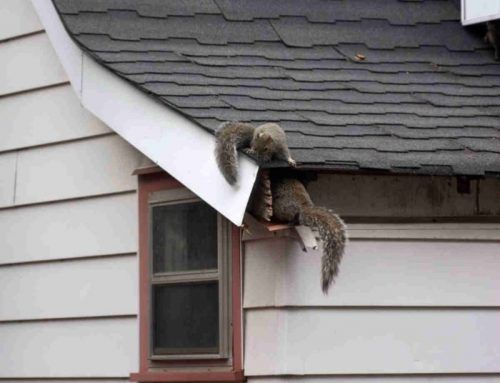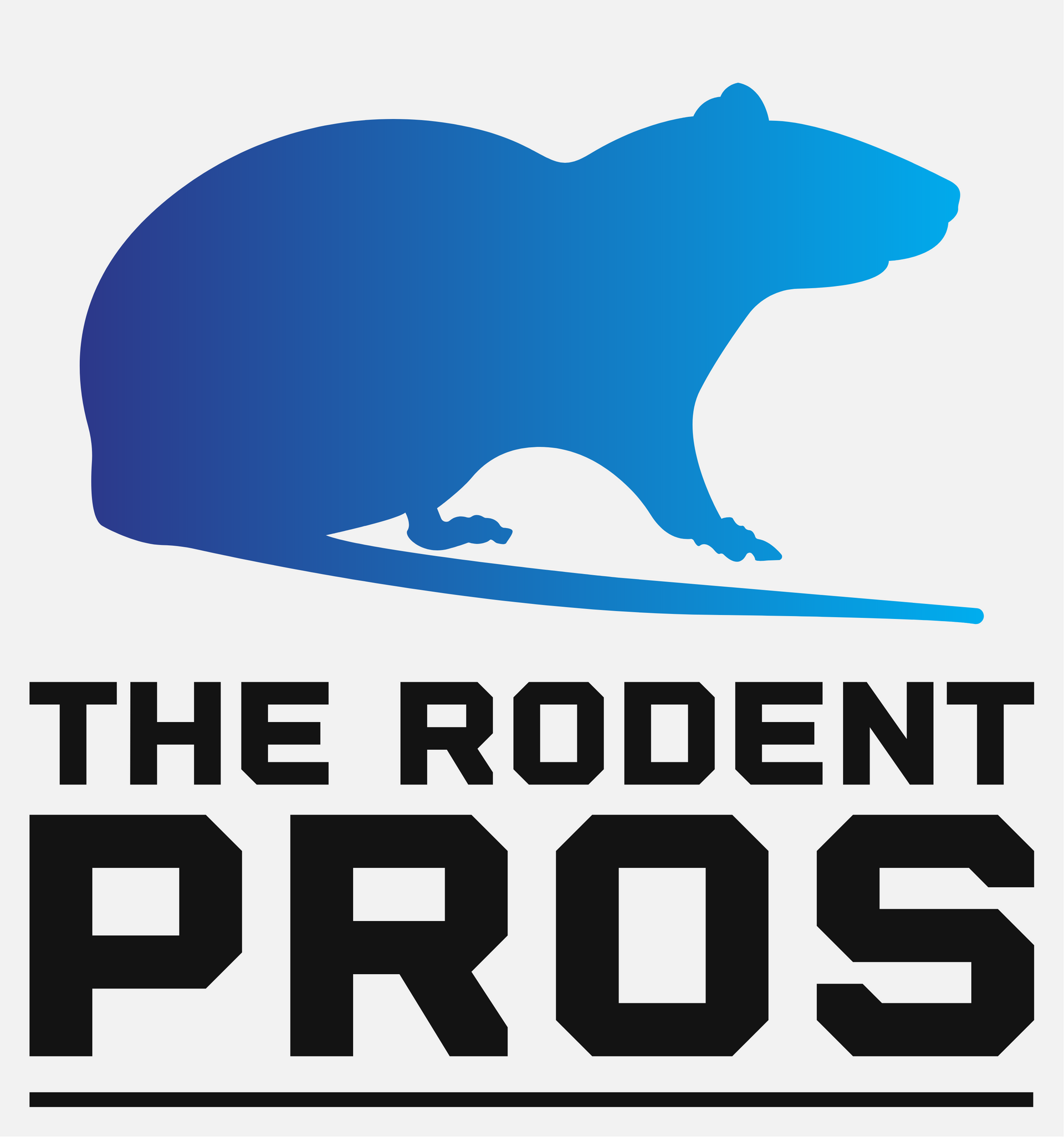
Squirrel Removal
Squirrels are ubiquitous in Florida and are known for their agile climbing abilities and curious nature. While they may seem harmless, squirrels can cause significant challenges and disruptions for homeowners. Understanding the effects of squirrels on homes in Florida is essential for implementing effective management strategies and mitigating their impact.
Nesting and Habitat
Squirrels commonly nest in trees, attics, and crawl spaces, seeking shelter and safety for raising their young. In residential areas, they may gain access to attics through small openings or damaged vents, where they build nests using materials like leaves, twigs, and insulation. Their presence in attics can lead to property damage and disturbances for homeowners.
Structural Damage
One of the primary concerns with squirrels in homes is their potential for causing structural damage. They may chew on wood, insulation, electrical wiring, and PVC pipes while creating or expanding their nests. This behavior can weaken structural integrity, increase fire hazards from exposed wiring, and lead to costly repairs for homeowners.
Electrical Hazards
Squirrels are known to chew on electrical wiring in homes, potentially causing short circuits, power outages, and electrical fires. Damaged wiring can disrupt household appliances and pose safety risks for residents. Identifying and addressing squirrel-related damage to electrical systems is crucial for preventing accidents and ensuring the safety of homeowners.
Property Damage
Squirrels can cause property damage by gnawing on furniture, window frames, and outdoor structures like bird feeders and garden ornaments. They may also raid gardens and orchards, damaging crops and landscaping. Damage to property aesthetics and functionality can diminish property values and require homeowners to invest in repairs and pest control services.
Noise and Disturbance
Squirrels are active during daylight hours, producing noises such as scratching, scurrying, and vocalizations. In attics and walls, these sounds can disrupt residents' sleep patterns and cause annoyance and stress. Persistent squirrel activity may affect residents' quality of life and well-being, prompting the need for intervention to mitigate disturbances.
Health Risks
While squirrels generally do not pose direct health risks to humans, their presence can attract parasites like fleas, ticks, and mites into homes. These pests can transmit diseases and cause discomfort for residents and pets. Squirrel droppings in attics or crawl spaces can also contribute to indoor air pollution and respiratory issues for sensitive individuals.
Food Source Contamination
Squirrels may enter homes in search of food, raiding pantries, and gnawing through food packaging. Their access to stored food can lead to contamination with saliva, fur, or feces, posing health risks for residents. Proper food storage and waste management practices are essential for preventing squirrel access to indoor food sources and minimizing contamination risks.
Garden and Landscape Damage
Squirrels are notorious for digging up lawns, raiding bird feeders, and damaging plants in gardens and landscaping. They may bury nuts and seeds, disrupting soil and plant growth patterns. Gardeners and homeowners may experience frustration and financial losses due to squirrel-related damage to crops, flowers, and outdoor structures.
Pet Interactions
Squirrels may interact with household pets, leading to potential conflicts and health risks. They can provoke dogs or cats, especially if cornered or defending their nests. Squirrel encounters may result in injuries to pets or transmission of diseases and parasites, requiring veterinary care. Proper supervision of pets and minimizing wildlife interactions are crucial for pet safety and well-being.
Vehicle Collisions
Squirrels are agile climbers and may venture onto roadways, increasing the risk of vehicle collisions, especially in residential areas with dense vegetation. Collisions with squirrels can cause vehicle damage, injuries to drivers and passengers, and pose safety hazards on roadways. Motorists should exercise caution and awareness to avoid squirrel-related accidents.
Environmental Impact
Squirrels play a role in ecosystem dynamics by dispersing seeds, contributing to forest regeneration, and serving as prey for predators. However, their presence in urban and suburban environments can disrupt natural habitats and compete with native wildlife for food and resources. Managing squirrel populations requires balancing conservation efforts with minimizing impacts on local ecosystems.
Urban Wildlife Management
Managing squirrel populations in urban areas involves implementing integrated pest management strategies and promoting coexistence with wildlife. Techniques such as habitat modification, exclusion methods, and humane trapping can reduce squirrel-human conflicts and minimize property damage. Educating residents about responsible wildlife management practices is essential for fostering harmonious relationships with squirrels.
Legal Considerations
Residents in Florida must adhere to local wildlife regulations and ordinances governing the removal and management of squirrels. Permits may be required for trapping and relocating squirrels, emphasizing the importance of legal compliance and ethical treatment of wildlife. Understanding and following legal considerations ensure that residents participate in responsible squirrel management practices while protecting public safety and animal welfare.
Economic Costs
Squirrel infestations can result in economic costs for Florida homeowners, including expenses for property repairs, pest control services, and damage to landscaping. Property values may be affected by persistent squirrel activity and associated damages, impacting homeowner investments and community aesthetics. Mitigating squirrel-related costs requires proactive pest management and maintenance efforts.
Public Health Outreach
Public health outreach programs educate Florida residents about the risks associated with squirrel interactions and effective prevention measures. Informational campaigns, workshops, and educational materials raise awareness about squirrel behavior, disease transmission, and safe wildlife management practices. Empowering residents with knowledge promotes proactive measures to protect public health and reduce wildlife conflicts.
Wildlife Rehabilitation and Conservation
Wildlife rehabilitation centers in Florida provide critical care and support for injured or orphaned squirrels, promoting conservation efforts and wildlife welfare. Rehabilitation professionals rehabilitate injured squirrels, provide medical treatment, and prepare them for release back into their natural habitats. These efforts contribute to the preservation of squirrel populations and promote environmental stewardship in the community.
Community Engagement
Community engagement initiatives encourage Florida residents to participate in wildlife conservation and urban wildlife management efforts. Neighborhood watch programs, wildlife monitoring projects, and volunteer opportunities promote collaboration among residents, local organizations, and government agencies. Building community resilience and fostering stewardship of natural resources enhance efforts to coexist with squirrels and maintain ecological balance.
Technological Innovations in Wildlife Management
Advancements in wildlife management technology offer new tools and methods for monitoring and controlling squirrel populations in urban environments. GPS tracking devices, remote cameras, and digital mapping software enable wildlife professionals to study squirrel movements, habitat use, and population trends. Innovative solutions improve the effectiveness of squirrel management strategies while minimizing impacts on resident communities.
Cultural Significance
Squirrels hold cultural significance in Florida and throughout North America, appearing in folklore, literature, and indigenous traditions. Understanding the cultural importance of squirrels promotes appreciation for their role in ecosystems and fosters respect for wildlife conservation efforts. Cultural awareness encourages residents to advocate for responsible wildlife management practices and support initiatives that protect squirrels and their habitats.
Sustainability and Resilience
Promoting sustainable practices and resilience in urban wildlife management enhances Florida's ability to manage squirrel populations effectively. Sustainable initiatives include habitat restoration, green infrastructure development, and community-driven conservation projects. Building resilience against squirrel impacts supports long-term environmental sustainability and promotes harmonious coexistence between residents and wildlife.
Emergency Preparedness
Residents in Florida should be prepared for emergency situations involving squirrels, such as encounters or wildlife-related incidents. Establishing emergency response plans, identifying local wildlife contacts, and maintaining essential supplies promote safety and readiness in managing squirrel interactions. Emergency preparedness efforts ensure prompt and effective responses to mitigate risks associated with squirrel encounters and protect community well-being.
Ethical Considerations
Ethical considerations guide responsible wildlife management practices and humane treatment of squirrels in Florida. Residents should prioritize non-lethal methods for managing squirrel conflicts, such as habitat modification and exclusion techniques. Respecting wildlife welfare and promoting coexistence with squirrels uphold ethical standards and foster compassionate stewardship of natural resources in the community.
Community Resilience
Building community resilience against squirrel impacts requires collaboration, communication, and proactive planning among residents and stakeholders. Engaging in wildlife conservation initiatives, participating in educational programs, and supporting wildlife rehabilitation efforts strengthen community resilience. Collective actions promote sustainable solutions to squirrel management challenges and enhance quality of life for Florida residents.
Conclusion
In conclusion, squirrels have diverse effects on homes and residents in Florida, ranging from property damage and health risks to ecological impacts and cultural significance. Addressing these effects requires integrated wildlife management strategies, public education, and community engagement. By fostering responsible wildlife stewardship and promoting sustainable practices, Florida residents can coexist with squirrels while protecting public health, preserving natural resources, and enhancing community resilience for future generations.

